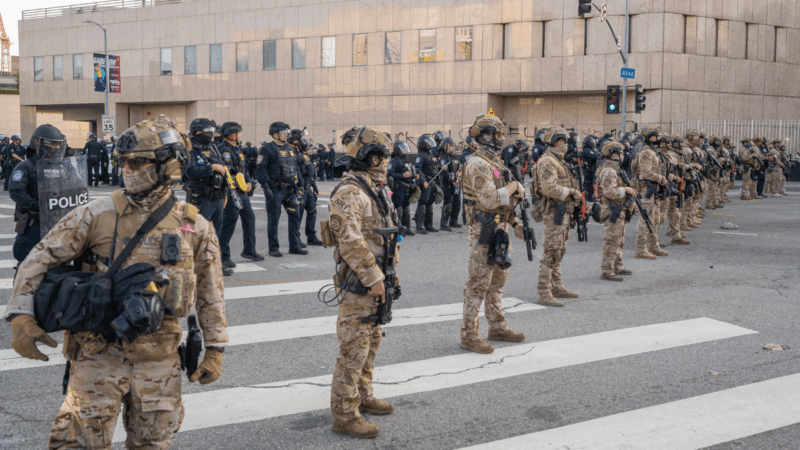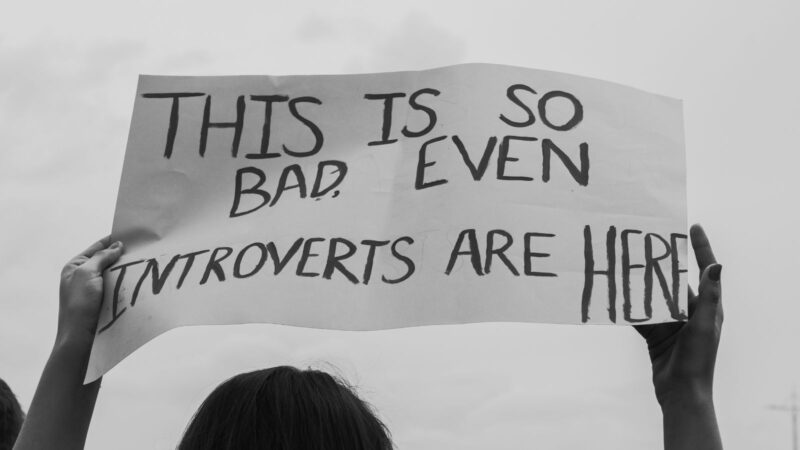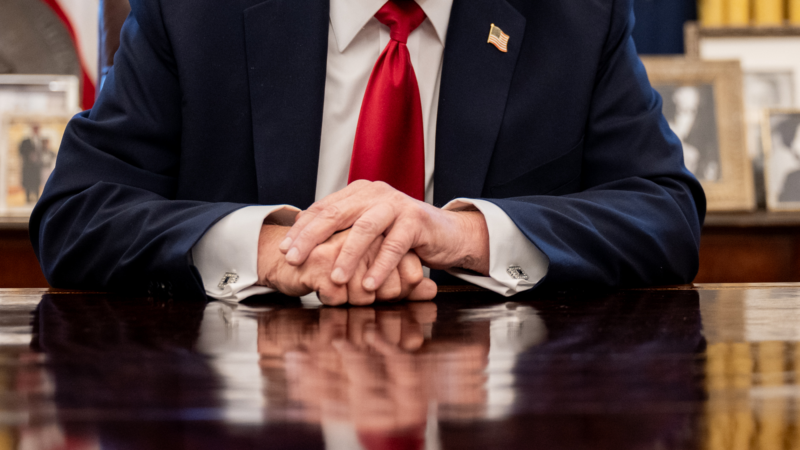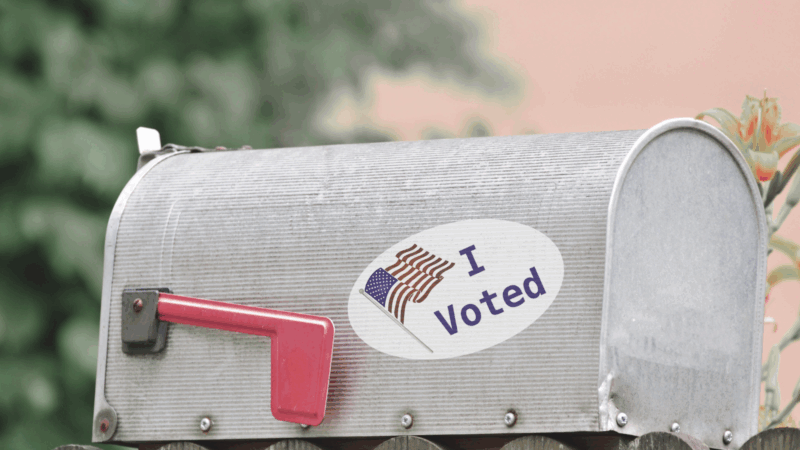Why using “zombie lawsuits” to challenge election results will fail
- November 1, 2024
The suits are meant to cast doubt on the validity of the election results and provide a pretext to challenge them — not to succeed in court
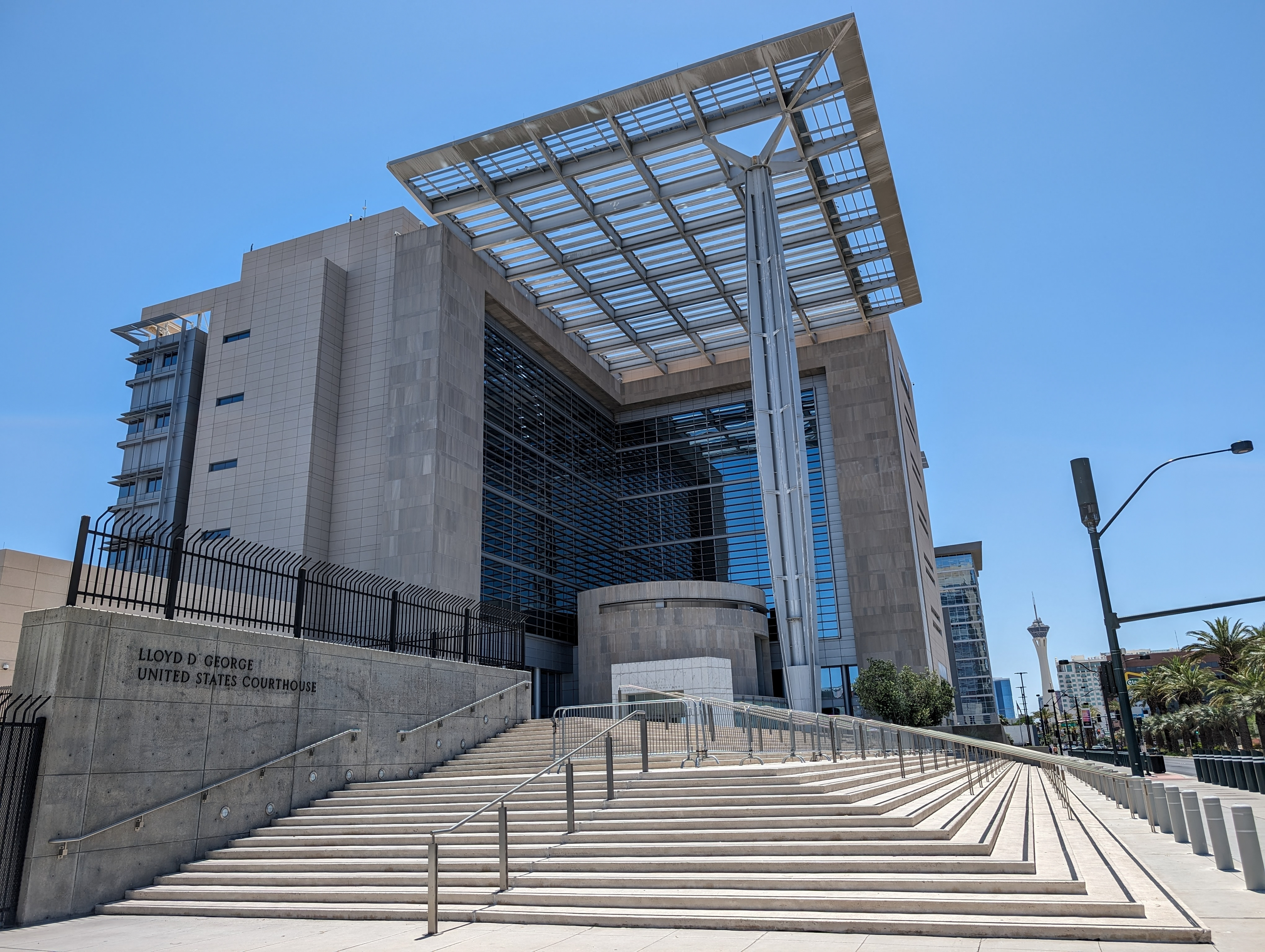
Introduction
As the election nears, the Republican National Committee (RNC), affiliated groups and allies, and other election deniers are pursuing dozens of lawsuits challenging established election-administration practices and attempting to make it harder to vote. Many of these suits are based on misleading claims about voter fraud and, particularly, non-citizens registering to vote. These baseless suits are rooted in debunked conspiracy theories, and several have already been dismissed in court. Examples include:
- Baseless lawsuits in Michigan, North Carolina, and Pennsylvania challenging votes from the armed services and U.S. citizens abroad,
- Lawsuits in Nevada, Arizona, and many other states pushing for unreliable methods of list maintenance that would disenfranchise voters,
- Lawsuits in North Carolina, Texas, and other states seeking nonexistent or inaccurate immigration data from the federal government under the guise of verifying citizenship status of registered voters; and
- Lawsuits challenging various aspects of mail-in voting, such as signature verification practices, whether late-arriving ballots can be counted, whether voters can still vote provisionally if their mail-in ballot is rejected, and whether ballots should still count if the post office makes a postmark error.
As we’ve noted before, the point of these pre-election suits is not to succeed in court, but to deceive the public, disrupt election administration, and cast doubt on the validity of the results, providing a pretext to challenge them. We call them “zombie lawsuits” because they’re dead on arrival but will rise from the grave after the election.
In 2020, several of Trump’s ill-fated lawsuits were thrown out because the plaintiffs waited too long to file suit.1See, e.g., Kistner v. Simon, No. A20-1486, slip op. at 4 (Minn. Dec. 4, 2020); Kelly v. Commonwealth, 240 A.3d 1255, 1257 (Pa. 2020); Trump v. Biden, 951 N.W.2d 568, 572-77 (Wis. 2020) This election, the RNC and allies are filing suit earlier, still without merit, so they can claim after the election that they raised their claims beforehand. This paper explains how these efforts to turn frivolous lawsuits into effective post-election subversion — though they pose real risks to election administration and public confidence in our elections — are doomed to fail.
Read the full paper as a PDF Read the full paper as a PDF
Procedural legal doctrines in all states bar “electoral sandbagging”
Many of the current zombie suits challenging long-standing election administration practices were still filed too late for the changes they seek to be feasible, and the eleventh-hour timing of these suits belies their true intent. If the plaintiffs were acting in good faith, they would have filed much earlier, with ample time for election administrators to take action. (For example, many of the lawsuits challenging states’ list maintenance practices were filed close to or within the 90-day period before an election in which federal law prohibits any systematic list maintenance whatsoever.)
The real purpose of these suits is to deceive voters, disrupt our elections, and create a pretext to deny the results afterwards, allowing election deniers to tell courts in post-election challenges that they had raised their concerns before the election.
But state common law doctrines aimed at preventing abuse of the courts prohibit this sort of sandbagging.
In particular, the doctrine of laches bars relief for lawsuits that should have been brought earlier, where the plaintiffs gain some unfair advantage through delay.2See, e.g., Reschenthaler v. Schmidt, 1:24 Civ. 1671 (M.D. Penn. Oct. 29, 2024), Dkt. 98 at 12-16; Mich. Republican Party v. Benson, 24-000165-MZ (Mich. Ct. Cl. Oct. 21 2024), at 12-15. See generally Harry Isaiah Black, State Democracy Research Initiative, Research Note: Laches in State Court Election Cases (Oct. 11, 2024), https://statedemocracy.law.wisc.edu/research/2024/research-note-laches-in-state-court-election-cases/ Courts have reasoned that laches is particularly appropriate when litigants engage in “electoral sandbagging,”3Lisa Marshall Manheim, Electoral Sandbagging, 13 UC Irvine L. Rev. 1187, 1191 (2023) meaning litigants refrain from challenging an election law or practice before an election — or perhaps even support it — but then sue after the election to challenge the results if their candidate loses.4Black, supra n.2. See, e.g., Lewis v. Cayetano, 823 P.2d 738, 741 (Haw. 1992) (“We apply the doctrine of laches in cases such as this and Thirty Voters v. Doi[,] [599 P.2d 286, 288 (Haw. 1979),] because efficient use of public resources demand that we not allow persons to gamble on the outcome of the election contest then challenge it when dissatisfied with the results, especially when the same challenge could have been made before the public is put through the time and expense of the entire election process.”); Ross v. State Bd. of Elections, 876 A.2d 692, 705–06 (Md. 2005) (“[A] candidate or other election participant should not be allowed to ambush an adversary or subvert the election process by intentionally delaying a request for remedial action to see first whether they will be successful at the polls.”); Trump v. Biden, 951 N.W.2d 568, 572 (Wis. 2020) (“[Laches] is applied because the efficient use of public resources demands that a court not allow persons to gamble on the outcome of an election contest and then challenge it when dissatisfied with the results, especially when the same challenge could have been made before the public is put through the time and expense of the entire election process.” (quoting 29 C.J.S. Elections § 459 (2020))). But see, e.g., In re Contest of Nov. 8, 2011 Gen. Election of Off. of New Jersey Gen. Assembly, 40 A.3d 684, 706 (N.J. 2012) (holding that the plaintiff was not required to seek the removal of a candidate from the ballot prior to the election since state law allows a party 30 days to contest an election and the plaintiff, who was competing against that candidate, would have had “to expend the time and resources” prior to the election “pursuing an investigation and litigation when such commodities are precious”)
That’s what happened in 2020 and again is what’s happening here. In many of these cases, the plaintiffs could have sued at any point in the last four years or more, and instead waited until the right before the election — or after voting began — when it’s legally and administratively too late to fix the issues they purport to identify. Having filed a suit mere weeks before the election doesn’t solve the sandbagging problem — the suits are still too late if their timing serves to disrupt or secure an unfair advantage, even if they were on file before Election Day.
Now, some of these lawsuits have already been dismissed,5See, e.g., RNC v. Benson, 1:24 Civ. 262 (JMB) (RSK) (W.D. Mich Oct. 22, 2024), Dkt. 35; RNC v. Aguilar, 2:24 Civ. 518 (D. Nev. Oct. 18, 2024), Dkt. 121; Md. Elec. Integrity, LLC v. Md. State Bd. of Elec., SAG-24-00672 (D. Md. May 3, 2024), Dkt. 40. and more likely will be between now and Election Day. For any coming post-election lawsuits based on these resolved cases, there are applicable legal doctrines that protect against using the courts to disturb already-settled matters. The doctrine of claim preclusion (also known as res judicata) bars the same parties or their “privies” — those sufficiently closely related to them under the law — from litigating the same claim or cause of action that was litigated (or, sometimes, that could have been litigated) after a final decision on the merits has been reached.6See, e.g., Starship Enterprises of Atlanta, Inc. v. Gwinnett Cnty. 319 Ga. 293, 303-04 (Ga. 2024); Mecosta Cnty. Med. Ctr. v. Metro. Group Prop. and Cas. Ins. Co., 509 Mich. 276, 282 (Mich. 2022); Five Star Capital Corp. v. Ruby, 124 Nev. 1048, 1054 (Nev. 2008); Thomas M. McInnis & Assocs., Inc. v. Hall, 318 N.C. 421, 428 (N.C. 1986); Yamulla Trucking & Excavating Co., Inc. v. Justofin, 771 A.2d 782, 784 (Pa. Super. 2001), appeal denied, 784 A.2d 119 (Pa. 2001); Northern States Power Co. v. Bugher, 189 Wis. 2d 541, 551 (Wis. 1995). Another doctrine, issue preclusion (also known as collateral estoppel), bars a party from relitigating an issue that was already decided in a prior proceeding between the same parties or their privies.7Waldroup v. Greene Cnty. Hosp. Auth. 265 Ga. 864, 867 (Ga. 1995); Mecosta Cnty. Med. Ctr. 509 Mich. at 282-83; Five Star Capital Corp., 124 Nev. at 1055; Gift Surplus, LLC v. N. Carolina ex rel. Cooper, 605 F.Supp.3d 711, 725 (M.D.N.C. 2022); J.S. v. Bethlehem Area Sch. Dist., 794 A.2d 936, 939 (Pa. Commw. Ct. 2002); In re Commitment of Sorenson, 254 Wis. 2d 54, 67 (Wis. 2002). Importantly, some state courts have held different voters to be “in privity” with each other or with partisan political organizations because the interests they sought to protect in election litigation were functionally indistinguishable, despite the different identities of the plaintiffs themselves.8See, e.g., Lilly v. Heard, 295 Ga. 399, 403 (Ga. 2014); Law v. Whitmer, 136 Nev. 840 (Nev. 2020), at *16. And so, the RNC and proxy groups whose suits are thrown out will likely be barred by preclusion doctrines from using the same claims, evidence, or arguments as a basis for post-election challenges — potentially even if the individuals and entities bringing suit are different.
These suits can not provide a basis for refusalThese suits cannot provide a basis for refusing to certify the results or for a successful post-election contest
Given the current climate of election denialism and conspiracy theories, we are likely to see some officials attempt to refuse to certify election results to delay the conclusion of the 2024 election if they disagree with the results. These officials could use zombie claims to justify their refusal. That would be a nonstarter. State laws say that certification is a mandatory, ministerial duty. State officials tasked with certification are only responsible for ensuring that the ballots were cast and counted according to the procedures outlined in state law. The results are repeatedly checked and verified before certification, and a refusal to certify can be met with civil and criminal penalties.
In many cases, the proper venue to raise disputes about an election is in state election contests or protests, which are legal proceedings often filed in state court (or with an administrative body that functions similarly), with the issues ultimately decided by one or more judges. It is in state election contests that we are most likely to see zombie claims return after the election. Though the permissible bases for election contests vary from state to state, in all states, the burden for a successful election contest is on the challenger to explain the basis for bringing an election contest and to prove, with specific and credible evidence, that the court should reverse (or throw out) the results of the election. Generally, courts will only entertain challenges and consider ordering some sort of remedy where the challenger can demonstrate that the number of votes at issue is potentially dispositive — meaning the number of votes at issue is greater than the margin of victory and therefore sufficient to change the outcome of the election.9See, e.g., Kinney v. Putnam Cty. Canvassing Bd. By & Through Harris, 253 So. 3d 1254, 1256 (Fla. Dist. Ct. App. 2018) (To void an election, a plaintiff must establish “reasonable doubt . . . as to whether a certified election expressed the will of the voters.”); Ga. Code Ann. § 21-2-522 (providing that elections can generally be contested for fraud and other irregularities only if such issues are “sufficient to change or place in doubt the result”); Iowa Code Ann. § 57.1(2) (same); Hanlin v. Saugatuck Twp., 299 Mich. App. 233, 243 (2013) (collecting cases holding that elections should not be set aside unless the outcome was affected); N.C. Gen. Stat. Ann. § 163-182.10(d)(2)(e) (providing that a challenger must prove by substantial evidence that a purported irregularity “was sufficiently serious to cast doubt on the apparent results of the election”); Carlson v. Oconto Cty. Bd. of Canvassers, 240 Wis. 2d 438, 450 (Ct. App. 2000) (Wisconsin “public policy favors upholding a flawed election in the absence of fraud, unless there is some proof of the effect the irregularity would have had on the outcome.”). Some courts, though, have made an exception for certain kinds of systemic problems that call into question the overall fairness or integrity of the election, even when the number of affected votes cannot be proven conclusively. See, e.g., Bolden v. Potter, 452 So. 2d 564, 567 (Fla. 1984) (invalidating absentee ballots where “fraudulent vote-buying practices” were so “pervasive that it tainted the entire absentee voting procedure” even if it had not been proved that fraud had swung the outcome); Martin v. Fulton Cty. Bd. of Regist. & Elec., 307 Ga. 193, 223 (2019) (“[A]n election may be voided,” even if the contestant cannot prove a number of discrete votes were affected, “where systemic irregularities in the process of the election are sufficiently egregious to cast doubt on the result.”); Order on Contest for Judicial District 16B, Seat 2, S.B.E. 5 (N.C. 2019) (“When substantial evidence confirms the occurrence of irregularities or improprieties, but it is not possible to quantify the precise number of affected votes, the State Board may proceed to determine whether the occurrence of such irregularities or improprieties was so extensive that they taint the results in that contest and cast doubt on its fairness.”); McNally v. Tollander, 100 Wis. 2d 490, 505 (1981) (“[I]n a case where deprivations of the right to vote are so significant in number or so egregious in character as to seriously undermine the appearance of fairness, we hold such an election must be set aside, even where the outcome of the election might not be changed.”).
The real purpose of these suits is to deceive voters, disrupt our elections, and create a pretext to deny the results afterwards
Moreover, some courts make clear that they generally will not entertain post-election contests over issues that could have been raised before the election.10See, e.g., Williams v. Fink, 2019 WL 3297254, at *3 (Ariz. Ct. App. July 22, 2019) (holding that challenge to a county system of ordering names on ballots could be brought only before the election).
State election contests must comply with federal law, which places a similarly high burden on parties that bring post-election challenges. And some challenges are brought directly in federal court. Federal court challenges often include due process and/or equal protection claims under the Fourteenth Amendment — though as a practical matter, the ultimate analysis is often the same whether the claim is styled as “due process” or “equal protection.”11In many cases, challengers may also bring claims under Sections 2 or 11(a) of the Voting Rights Act, though Section 2 claims in particular are most often brought before elections take place. Section 2 prohibits states from imposing or applying any voting “standard, practice or procedure . . . in a manner which results in a denial or abridgment of the right . . . to vote on account of race or color.” 52 U.S.C. § 10301(a). Section 11(a) provides that, “No person acting under color of law shall fail or refuse to permit any person to vote who is . . . qualified to vote, or willfully fail or refuse to tabulate, count, and report such person’s vote.” 52 U.S.C. § 10307(a). For instance, to bring a successful due process challenge, the challenger must demonstrate “patent and fundamental unfairness” in the overall conduct of an election.12As the U.S. Court of Appeals for the First Circuit explained: If the election process itself reaches the point of patent and fundamental unfairness, a violation of the due process clause may be indicated . . . . Such a situation must go well beyond the ordinary dispute over the counting and marking of ballots; and . . . [reach the level of ] broad-gauged unfairness [that] permeates an election . . . .” Griffin v. Burns, 570 F.2d 1065, 1077 (1st Cir. 1978). “Routine” or “garden-variety” election irregularities generally will not be enough to succeed in an election challenge.13See, e.g., Gamza v. Aguirre, 619 F.2d 449, 452-53, 454 n.6 (5th Cir. 1980). The mere fact that an election irregularity could have been a “but-for” cause in determining the winner is not, on its own, always sufficient to establish a constitutional violation. Rather, the courts generally look for exceptional circumstances before finding a due process violation. Equal protection claims face a similarly heavy burden of proof: defective election administration that results in unequal treatment of similarly situated voters does not amount to an equal protection violation without “an element of intentional or purposeful discrimination.”14Snowden v. Hughes, 321 U.S. 1, 8-9 (1944); see also Smith v. Cherry, 489 F.2d 1098, 1102-03 (7th Cir. 1973).
Now, as we have explained before, the election deniers’ underlying claims are baseless — they rely on extremely flawed data and methodologies, and mostly just make it harder for eligible voters to vote. But assuming for the sake of argument that these zombie suits were meritorious, they would still fall far short of the burden required for a successful election contest. By and large, these zombie lawsuits claim (without evidence) some sort of illegal voting at scale. Most commonly this election, they claim that large numbers of individuals on the voter rolls are noncitizens or are otherwise not qualified to vote. But even accepting their false premises, these suits generally fall far short of alleging, let alone proving, a potentially outcome-determinative volume of illegal voting. For instance, even the hypothetical presence of unqualified people in the voter rolls does not mean that unqualified people are voting in meaningful numbers. And overturning an election would require proof not only that ineligible voters participated, but that they did so at a scale that could impact the actual outcome. That is extremely unlikely.
In fact, there is no evidence of illegal voting in meaningful numbers in our elections. The dominant conspiracy theory of the day is noncitizen voting, but even so-called “election integrity” groups — including former President Trump’s own “Presidential Advisory Commission on Election Integrity” and the Heritage Foundation — have searched and searched but found no evidence of systematic or widespread noncitizen voting.
Noncitizens and others who are not eligible to vote simply have no incentive to vote. On one hand, a single vote or even a handful of votes is virtually never sufficient to swing an election. On the other hand, multiple state and federal laws prohibit noncitizens from voting, including the National Voter Registration Act of 1993, the Help America Vote Act of 2002, and the Illegal Immigration Reform and Immigration Responsibility Act of 1996. Violators can not only be fined and imprisoned for up to a year, but noncitizens can also be deported or be denied citizenship or immigration benefits. And election officials — as required by federal law and a variety of state laws — take a range of steps to verify the identity and citizenship status of all voters.
To say it plainly, an ineligible individual wouldn’t gain anything personally from illegally casting a ballot — and would have a whole lot to lose. So, even if the election deniers somehow managed to convince a court using their quack analysis that there were in fact tens of thousands of noncitizens in a state’s voter rolls, they still would be unable to come up with evidence of meaningful numbers of noncitizens actually voting — because none exists. Hence, these post-election zombie suits are doomed to fail on the merits.15Even if an election challenge had merit, the ECRA and many states’ laws do not authorize states to invalidate or disregard all votes in a presidential election and conduct a new one from scratch. The ECRA provides that “election day” means “means the Tuesday next after the first Monday in November” in presidential election years. 3 U.S.C. § 21(1). The only remedy expressly available to a state should “force majeure events that are extraordinary and catastrophic” interfere with the electoral process is to expand the period of voting. Id. This lack of statutory authorization weighs heavily against a court ordering an election redo. Several states, like Michigan, Nevada, and Pennsylvania, provide for specified remedies under their challenge statutes that do not include voiding the election. See NFTEC election challenge paper appendix. Some states have explicitly prohibited voiding elections. See, e.g., Tex. Elec. Code § 243.012 (prohibiting voiding presidential contests).
These suits cannot justify January 6th misconductThese suits cannot justify January 6th misconduct
After the 2020 election, Donald Trump and his allies sought to exploit perceived ambiguities in the Electoral Count Act — the federal law that governs the casting of Electoral College votes and the counting of those votes in Congress — to overturn the election. While those efforts ultimately failed, they led directly to the violence at the Capitol on January 6, 2021. As a result, Congress passed bipartisan legislation — the Electoral Count Reform Act (ECRA) — to provide clarity on the process of casting and counting electoral votes. The ECRA strikes a balance between state and federal actors in the process, and carefully circumscribes the role of Congress and the Vice President.Critically, both state law and the ECRA provide mechanisms to resolve disputes about election certification and the appointment of electors before they reach Congress. It is simply not Congress’s role to resolve disputes about alleged defects or irregularities in state election administration. Disagreement with a state’s approach to voter roll maintenance or how it administered an election would not be a valid basis for objection at the January 6th joint session. The ECRA permits only two grounds for objections: that electors were “not lawfully certified” or that the vote of one or more electors was not “regularly given.”16 3 U.S.C. §15(d)(2)(B)(ii). Consistent with the purpose of the ECRA, these are narrow categories.17 Derek T. Muller, Electoral Votes Regularly Given, 55 Ga. L. Rev. 1529 (2021), https://georgialawreview.org/article/27922-electoral-votes-regularly-given. As Senator Collins explained, “not lawfully certified” is limited to ensuring that the appointment is lawful under the terms of the ECRA. The “not regularly given” objection is focused on a specific set of post-election problems or controversies, such as an electoral college vote cast in the wrong form or that was the product of bribery or coercion.18Congress.gov, Congressional Record, Sept. 24, 2024, https://www.congress.gov/congressional-record/volume-168/issue-199/senate-section/article/S9765-2 Neither objection category extends to disputes about alleged defects in basic administration of the election. Any objection to a state’s electoral votes that disputes not its electoral college appointments or the process of how its electors voted but rather that state’s administration of the general election would be unlawful under the ECRA.19Richard H. Pildes, There Are Guardrails in Place to Avert Partisan Manipulation of the Election Outcome, Lawfare Media, October 18, 2024, https://www.lawfaremedia.org/article/there-are-guardrails-in-place-to-avert-partisan-manipulation-of-the-election-outcome. Again, such disputes are to be resolved under orderly processes under state and federal law long before the joint session of Congress meets.
Conclusion
No procedural alchemy can turn election deniers’ nuisance lawsuits into successful election challenges. Common law doctrine in all states bars this sort of sandbagging and abuse of the courts. And even if it didn’t, and even in the counterfactual scenario where these lawsuits had merit, their claims cannot possibly provide a sufficient basis for a meritorious post-election challenge. Nor can members of Congress use them as a basis for objection in the January 6th joint session. These zombie lawsuits are not harmless. They deceive the public, disrupt our election processes, and risk undermining confidence in the integrity of our elections, providing a pretext to deny the results. But voters should be confident that these suits are doomed to fail and their votes will, after all, be counted.
Related Content
Join Us.
Building a stronger, more resilient democracy is possible, but we can’t do it alone. Become part of the fight today.
Donate
Sign Up for Updates Sign Up for Updates
Explore Careers Explore Careers
How to Protect Democracy How to Protect Democracy
